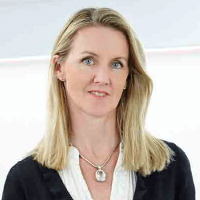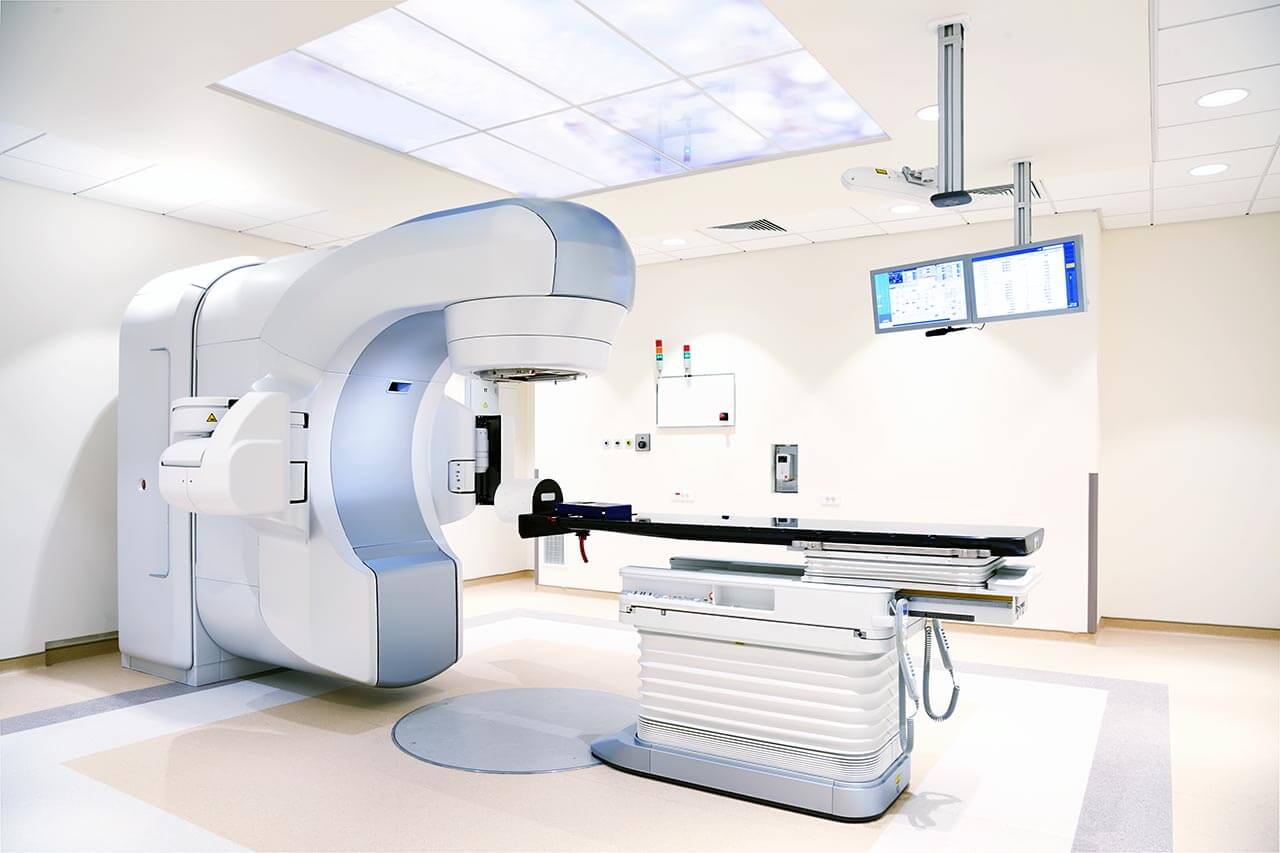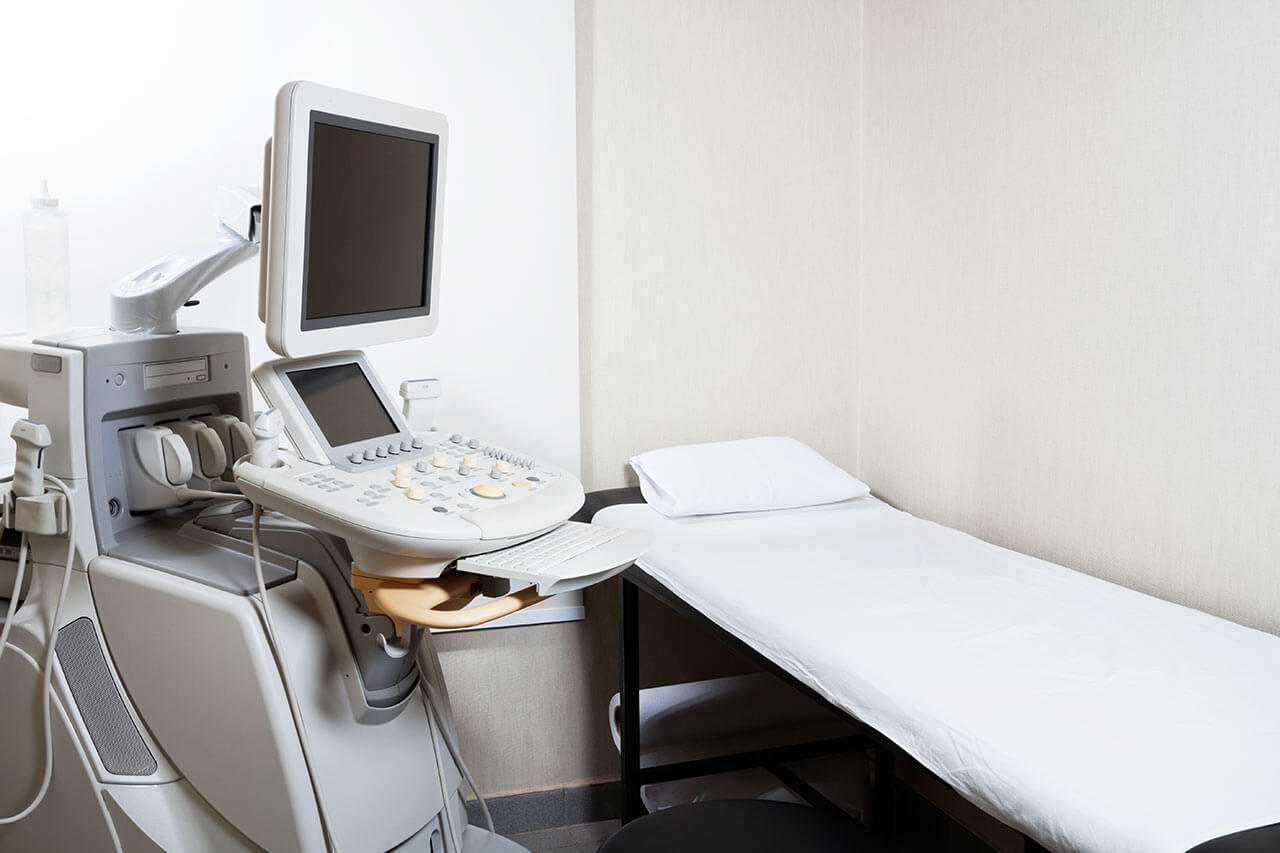
The program includes:
- Initial presentation in the clinic
- clinical history taking
- review of medical records
- physical examination
- laboratory tests:
- complete blood count
- general urine analysis
- biochemical analysis of blood
- inflammation markers (CRP, ESR)
- blood coagulation analysis (aPTT, PT, INR)
- hormone test (estradiol, progesterone, prolactin, DHEA-s, FSH, LH)
- gynecological examination.
- ultrasound examination: pelvis, abdomen, thyroid gland, breasts
- nursing services
- consultation of related specialists
- treatment by chief physician and all leading experts
- explanation of individual treatment plan
Required documents
- Medical records
Service
You may also book:
 BookingHealth Price from:
BookingHealth Price from:
About the department
The Department of Pediatric Endocrinology at the Pediatric Diagnostic Hospital M1 Munich offers all the possibilities of modern medicine in the diagnostics and treatment of hormone disorders and endocrine diseases, including the treatment of type 1 and type 2 diabetes mellitus in children. The department's doctors also provide medical care to young patients with genetic syndromes that affect hormone levels in the body. Turner syndrome, Noonan syndrome, and Prader-Willi syndrome are the most common cases in clinical practice. The department's doctors have equipment for the full range of laboratory tests in the field of pediatric endocrinology. As for the treatment, hormone replacement therapy or other types of drug therapy are usually provided. Diabetes mellitus treatment involves the intake of oral hypoglycemic medications and insulin replacement therapy. The department's team of doctors dedicates enough time to individual counseling of young patients and their parents, and they always find the best solutions to normalize the child's endocrine system function. The department is headed by Dr. med. Linda Johnston-Rohrbasser.
The department's doctors have vast experience in providing medical care to children with growth disorders. Children with accelerated growth (tall stature) and growth retardation (short stature) receive medical attention at the medical facility. In both cases, there are often concomitant pathological changes in other organs and body systems. The optimal age for assessing the growth rate of a child is between 2 and 4 years. During a clinical examination, a doctor assesses the growth of a young patient and compares the child's body length with the generally accepted norms for this age. An indispensable diagnostic method for suspected short or tall stature is growth hormone testing. Additionally, a complete blood count, a urinalysis, a stool analysis, hormone tests, and X-ray scans are performed. If growth disorders are detected in a child, the attending physician develops an individually tailored hormone therapy regimen aimed at replenishing the growth hormone deficiency in the case of its shortage or suppressing excessive growth hormone production. The department's specialists use high-quality and reliable hormone therapy medicines that guarantee a good therapeutic result. In the case of short stature, the department's endocrinologists also give recommendations on a balanced diet that helps to enrich the body with vitamins and nutrients, which play an important role in the normal development of the child's body.
The specialists successfully treat various thyroid diseases in children. Hypothyroidism (insufficient production of thyroid hormones) is one of the most common. If hypothyroidism is suspected, it is necessary to perform diagnostics and begin treatment as soon as possible. If the child does not receive therapy in a timely manner, there is a high risk of delayed physical and cognitive development, metabolic disorders, and delayed puberty. The basis of treatment is the use of hormones. The dosage of the drug is prescribed to each patient individually and, if necessary, can be adjusted during the therapeutic process. With timely hormone replacement therapy, the child grows and develops in accordance with the norms.
Particular attention is paid to the treatment of type 1 diabetes mellitus in children. The disease occurs due to an absolute deficiency of the hormone insulin, which is responsible for the absorption of glucose. Type 1 diabetes mellitus is a common disease in children and adolescents. Despite the progress of modern medicine, doctors have not yet determined the exact cause of its development. The treatment for type 1 diabetes mellitus is aimed at compensating for the lack of insulin in the body by injecting it or implanting an insulin pump that imitates the work of the pancreas. In addition to insulin therapy, the child must follow the diet prescribed by the doctor. Moderate exercises also play an important role.
The department specializes in the diagnostics and treatment of the following hormonal imbalances and endocrine disorders:
- Growth disorders
- Short stature
- Tall stature
- Disorders of sex development
- Delayed puberty
- Precocious puberty
- Hormone disorders caused by genetic syndromes: Turner syndrome, Noonan syndrome, and Prader-Willi syndrome
- Types 1 and 2 diabetes mellitus
- Thyroid diseases
- Hypothyroidism
- Hyperthyroidism
- Thyroiditis
- Nodular goiter
- Adrenal diseases
- Adrenal insufficiency
- Cushing's syndrome (hypercortisolism)
- Congenital adrenal cortex dysfunction
- Other endocrine disorders
The department's diagnostic and therapeutic options include:
- Diagnostics
- Blood tests
- Hormone tests
- Ultrasound scans
- Treatment
- Hormone replacement therapy
- Insulin replacement therapy
- Drug therapy
- Diet therapy
- Other medical services
Curriculum vitae
Higher Education and Postgraduate Training
- 1986 - 1989 Cambridge University, Cambridge.
- 1989 - 1992 St. Bartholomew's Medical College, London.
- 1992 Master of Arts, Bachelor of Medicine, Bachelor of Surgery, Cambridge University, Cambridge.
- 1993 Approbation (UK).
- 1995 Member of Royal College of Physicians.
- 2002 PhD in Medicine, University of London.
Additional Training
- 2007 Obesity coach
- 2012 Specialist in Genetic Counseling.
Professional Career
- 1993 - 1994 Department of Pediatrics and Neonatology, Brighton Children’s Hospital.
- 1994 - 1996 Department of Pediatric Cardiology, Pediatric Intensive Care Unit (Pediatric Neurology, Neonatology), Guy’s Hospital London.
- 1996 - 2001 Department of Pediatric Endocrinology and Diabetology, Royal London Hospital and St. Bartholomew's Hospital Barts.
- 2001 - 2002 Department of Pediatric Endocrinology and Diabetology, Great Ormond Street Hospital London.
- 2002 Board certification in Pediatric and Adolescent Medicine, additional qualification in Endocrinology and Diabetology.
- 2002 - 2007 PD in Pediatric Endocrinology and Diabetology, Royal London Hospital and St. Bartholomew's Hospital Barts.
- Since 2007 Head Physician Department of Pediatric Endocrinology at the Pediatric Diagnostic Hospital M1 Munich.
- 2008 Board certification in Pediatric and Adolescent Medicine by the Bavarian State Medical Association.
- 2009 Qualifications in Pediatric Endocrinology and Diabetology by the Bavarian State Medical Association.
Photo of the doctor: (c) M1 Privatklinik AG
About hospital
The Pediatric Diagnostic Hospital M1 Munich is a top-class medical facility specializing in pediatric and adolescent medicine. The hospital is located in the very heart of Munich. All areas of pediatric and adolescent medicine are represented here, and only high-quality medical services are provided, taking into account a child's diagnosis, his age, general health condition, and other important factors. The young patients are in the safe hands of excellent professionals who have unique clinical experience in treating pathologies in children and get along well with them.
The hospital is proud of its state-of-the-art diagnostic equipment, including devices for ultrasound scanning, comprehensive diagnostics of the cardiovascular system, and the innovative 4D MOTION LAB system, with which doctors can assess the condition of the spine and other anatomical structures of the musculoskeletal system without the use of X-rays.
The hospital has eight departments, and each of them is represented by a highly qualified team of specialists. Medical services are available here in the fields of pediatric pulmonology, endocrinology, hematology, oncology, cardiology, neurology, gastroenterology, nephrology, allergology, and orthopedics. Depending on the complexity of the clinical case, both conservative and surgical treatments can be provided. In the course of surgical interventions, low-traumatic techniques are almost always used, which contribute to the rapid recovery of children.
The hospital's doctors provide patients with highly qualified medical care in accordance with high international standards. In addition, the medical team makes every effort to make a child feel good. An atmosphere of calm and safety reigns here. The Pediatric Diagnostic Hospital M1 Munich enjoys an excellent reputation not only in Germany but also in many other European countries, so parents confidently trust the health of their children to the doctors at this healthcare facility.
Photo: (с) depositphotos
Accommodation in hospital
Patients rooms
The patients of the Pediatric Diagnostic Hospital M1 Munich live in cozy and comfortable rooms. The patient rooms have a modern design and light colors. Each patient room has an ensuite bathroom with a shower and a toilet. The patient room furnishings include an automatically adjustable bed, a bedside table, a table and chairs, a telephone, and a flat-screen TV. Wi-Fi access is also available. There are boxes with toys and children's books in the patient rooms so that children can have a good time. Walking along the corridors of the hospital, young patients will also see soft toys, toy cars, and other interesting things to play with. The hospital offers accommodation for the child in the patient room with one of their parents.
Meals and Menus
The hospital offers three delicious meals a day: breakfast, lunch, and dinner. If a child is on a diet or certain foods need to be excluded from the diet, an individual menu will be offered.
Further details
Standard rooms include:
Accompanying person
Your accompanying person may stay with you in your patient room or at the hotel of your choice during the inpatient program.
Hotel
You may stay at the hotel of your choice during the outpatient program. Our managers will support you for selecting the best option.




